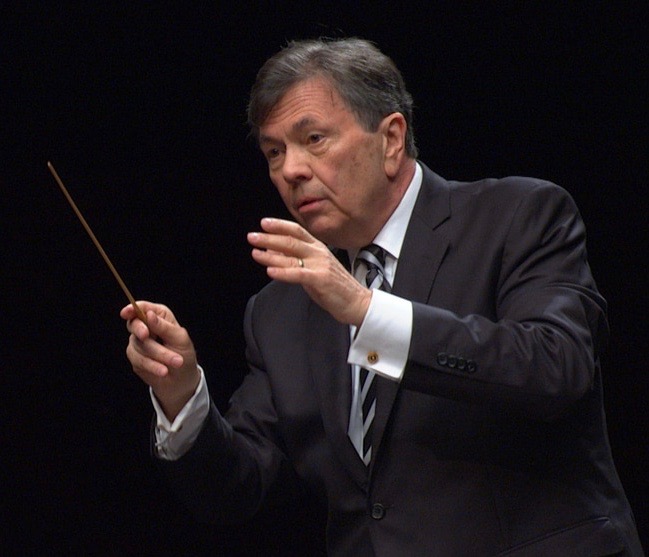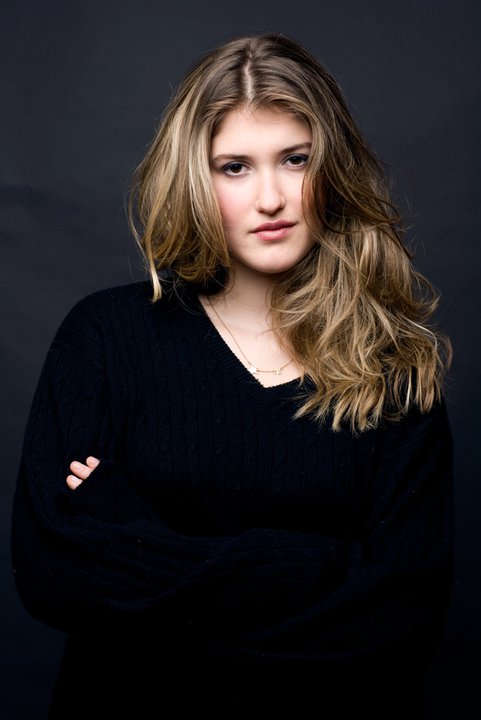Schwarz leads Symphonia in bracing Mozart, American works
Gerard Schwarz has long championed the works of major American composers, particularly the symphonists of the 1940’s and 50’s. On Sunday afternoon Schwarz conducted The Symphonia at Saint Andrew’s School in Boca Raton and, characteristically, his program spotlighted rarely heard scores by Walter Piston and Elliott Carter.
In his lifetime Piston was one of the most frequently performed American composers. Two of his eight symphonies were awarded Pulitzer prizes. Since his death in 1976, Piston’s music has fallen off the orchestral radar, partly because of the dearth of American conductors heading major orchestras. Yet Schwarz has continually programmed and recorded Piston’s music.
He opened the program with Piston’s Sinfonietta. The three-movement 1941 work speaks in a neo-classical voice but with a distinctively American accent. There is a touch of acerbic lyricism amid the bustle of the opening Allegro grazioso. Schwarz drew crisp accents from the thirty-four piece ensemble with the corporate effort emerging as a tight, well-drilled unit. The incisive unanimity of the violins (divided on both sides of the podium) and the dark, full tone of Karen Fuller’s flute took special honors.
Schwarz drew out an elegiac eloquence in the long threads of melody in the Adagio. He brought out the bristling energy of the short melodic cells in the concluding Allegro vivo while maintaining finely balanced coordination between the prominent winds and hard-driving strings.
Piston was one of Elliott Carter’s teachers at Harvard. Long before he became American music’s high priest of serialism, Carter was part of the creative circle that included Piston and Aaron Copland and was greatly influenced by them. Originally written for cello and piano and played in the composer’s later orchestration for string ensemble, Carter’s haunting Elegy (1939) is in the same Americana vein as the quieter moments of Copland ballet scores such as Billy the Kid or Appalachian Spring. Schwarz drew a rich tonal sonority from the string players.
During his nearly two decades as music director of Lincoln Center’s Mostly Mozart Festival, Schwarz led a wide swath of Mozart repertoire, both familiar and less-often-played scores. That experience was evident in the performances of the two Mozart works on the matinee program.
Right from the first bars of the Piano Concerto No. 20 in D minor, Schwarz brought out the storm and drama in the music with the principal themes spun in brisk strokes. Soloist Marika Bournaki exhibited a deft touch. Her runs were smoothly articulated and she played with impressive vitality. Bournaki displayed pounding power in the cadenza, leavened by nicely contrasted variety of dynamics and bold phrasing.
She shaped the familiar theme of the second movement with clipped accents. While her unsentimental approach was largely effective, the tempest-tossed central episode was too careful and genteel where more bravura would have been welcome. Bournaki’s fleet rendition of the final Rondo was invigorating and Schwarz deftly integrated the orchestral and keyboard lines, keeping the ensemble to the fore without overpowering the soloist.
As an encore, Bournaki offered a light and elegant rendition of Chopin’s Andante spianato, played at an unusually fast and flowing tempo. This young pianist exhibited strongly personal interpretive instincts in Mozart and Chopin and one looks forward to hearing her perform other repertoire in future appearances.
The concert concluded with Mozart’s Symphony No. 36 in C Major (“Linz”). While the Roberts Theater acoustic is on the dry side, Schwarz managed to achieve a large and vibrant collective sound from the ensemble. His probing performance offered more than the usual light-hearted traversal.
The Adagio introduction, taken at a measured pace, had unusual depth and the brass interjections in the brisk Allegro spiritoso were given strong emphasis. The underlying rhythmic pulse in the second violins and violas was especially transparent. There was a natural sense of momentum and intimacy in the Poco Adagio with the silken tone of the strings bringing subtlety to the aria-like theme.
In the robust Menuetto, Schwarz provided contrast by shaping the trio tune in a more aristocratic manner. The warmth and sonority of Erika Yamada’s oboe solo provided a nice complement to the movement’s more rustic outer sections. Schwarz avoided the temptation for excessive speed in the final Presto. The second subject was given extra lift and lilt and inner voices had fine clarity, aided by the divided placement of the violins. Schwarz offered a refined and supple reading of one of Mozart’s great symphonies, concluding an outstanding concert.
Kensho Watanabe conducts The Symphonia in Schubert’s Symphony No. 3, Tchaikovsky’s Souvenir de Florence, Bach’s Violin Concerto in E Major and Massenet’s Meditation from Thaïs January 6, 2019 at the Roberts Theater, Saint Andrew’s School in Boca Raton. thesymphonia.org; 866-687-4201.
Posted in Performances
One Response to “Schwarz leads Symphonia in bracing Mozart, American works”
Leave a Comment
Mon Dec 3, 2018
at 12:09 pm
1 Comment







Posted Dec 10, 2018 at 12:28 pm by Joe Barron
Very nice review, though I take issue with your characterization of Carter as a “high priest of serialism.” While Carter wrote atonal music, he did not use serial technique and was often quite critical of it.